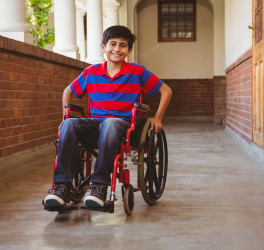
Local authorities across Merseyside must adopt a “genuinely holistic approach” to the provision of education for children and young people with special educational needs and disabilities (SEND), after research revealed significant gaps.
University of Liverpool Law School and Liverpool Law Clinic suggest the appointment of a lawyer with specialist knowledge of SEND law to take over responsibility for overseeing SEND cases, as well as the introduction of a system to ensure SEND officers are aware of, and comply with, time limits.
SEND officers should also communicate with parents and young people in an “honest, open and understanding manner”, with a record of such communication kept on file.
And increased oversight of school activity in relation to illegal school exclusions must take place “as a matter of urgency”.
The recommendations are made in the report, Children, Disability and Service Provision: A Liverpool/Merseyside Perspective by Seamus Byrne, Deborah Tyfield and Dr Amel Alghrani.
The report reveals what the authors call a “broad systems-wide failure” in the provision of SEND support across Merseyside.
It found that:
- just 12.5% of applicants interviewed received an education, health and care plan (EHCP) within the timescale set out in law
- 37.5% considered their EHCP, when delivered, to be vague and imprecise, with one respondent complaining it was “full of typing errors and spelling mistakes”
- 88% said applying for and obtaining the relevant care had directly impacted their health, family and personal lives
- 82% reported having to pay for either privately commissioned expert evidence or external legal or advisory assistance in order to secure support
- 41% reported having to give up work, close down their business or drop to part-time hours to continue attempting to secure support
“There is no question that overall the respondents within this study found the process to be extremely difficult” said Seamus Byrne.








